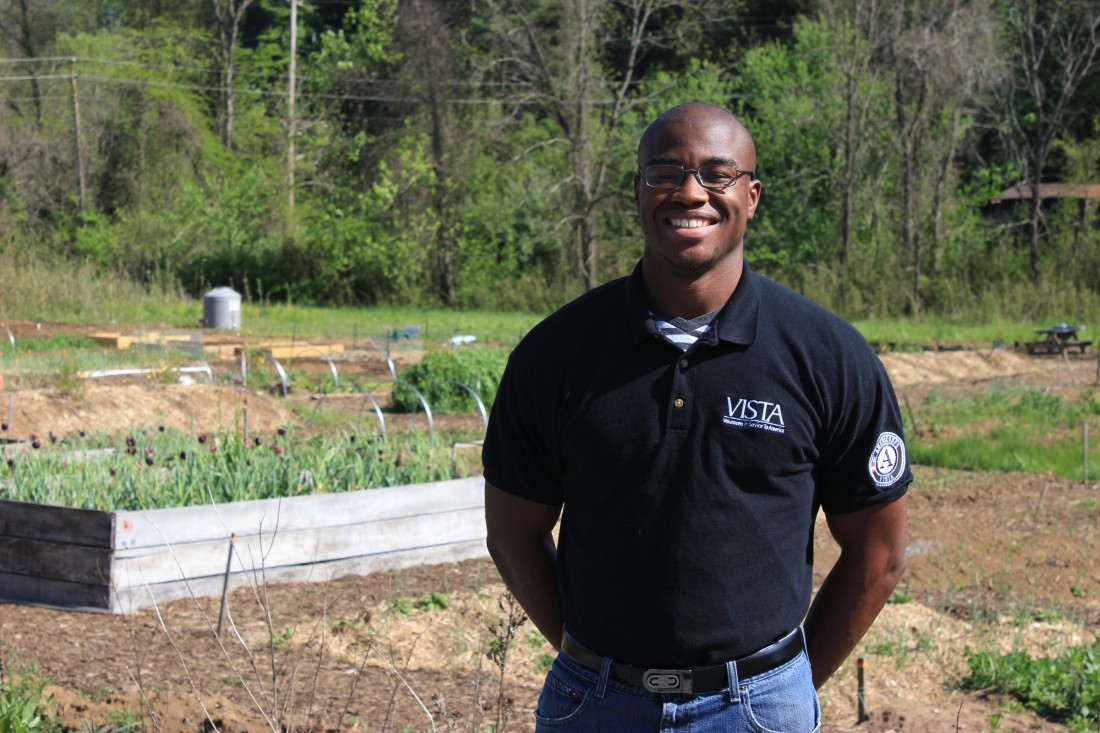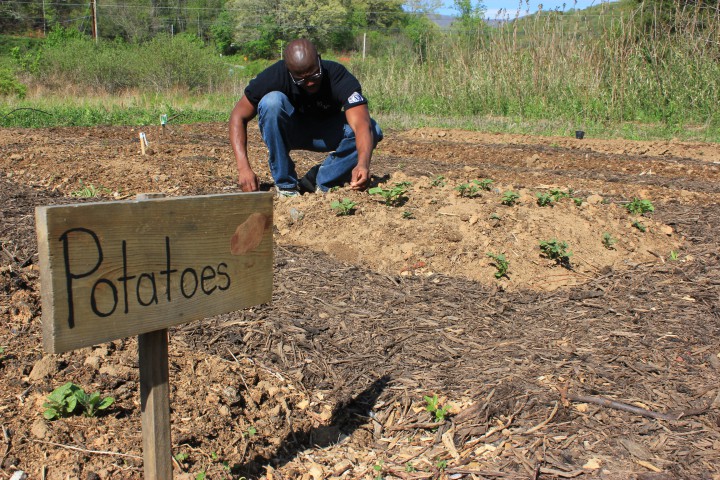In our new section, area growers discuss their gardens and growing projects. This week Willie Jones, an AmeriCorps VISTA with Western Carolina University’s Center for Service Learning and Food Security Partnership and founder of the Jackson County Glean Team, tells us about gleaning and how it can be used to combat food insecurity.
Mountain Xpress: What is gleaning?
Jones: Gleaning simply means to collect. It’s an old term that is referenced in the Bible and was considered the world’s first welfare system. Farmers would grow an extra row of produce to give to families in need. It was their way of giving back to their community and fulfilling that inner need for service.
Modern gleaning is when individuals go out to farms, backyards, fruit trees, etc., and collect excess goods, as well as information, to aid in the battle against poverty and food insecurity. Statistics from The Society of St. Andrew, a national gleaning organization, say that nationally 5.1 million pounds of food are salvaged through gleaning each year.
Gleaning combats food insecurity by educating the community being served, providing produce and goods to food-insecure individuals and connecting communities. In order to properly combat an issue and serve your community, you have to educate, as well as provide a positive experience for the gleaner and the individual being served.
Why did you decide to start the Jackson County Glean Team?
Prior to AmeriCorps, I didn’t know what gleaning was, but I knew about hunger and food insecurity, having experienced it personally. When I joined AmeriCorps and met with Dr. Lane Perry at Western Carolina University, he briefed me on the concept, saying he wanted a gleaning program established in Jackson County. I liked the idea and I knew I wanted to do as much as I could to combat food insecurity.
How much food do you estimate your team has gleaned this year? Where do you take it once you’ve gathered it?
Along with our winter glean, we have collected over 21,100 pounds of produce/goods and saved over $31,500 from being wasted. We distribute to The Community Table, United Christian Ministries and the Market in Jackson County, while in Haywood County we distribute to The Open Door Soup Kitchen, housing developments, food pantries, families in need and other gleaning organizations.
How do you think gleaning is different from other methods for combating food insecurity?
Gleaning is an empowering experience. It allows individuals to go out to farms, backyards, etc., and collect goods while connecting and helping their local growers, their community and themselves. Gleans allow individuals an opportunity to experience and learn about the growers’ lifestyle and craft. Gleaning is not a handout and never will be.
The best part about gleaning is everyone can be involved. Our definition of gleaning is ‘learning and serving.’ Whether you’re spreading the word of your experience, educating others, introducing new foods to your neighbor, passing down recipes or canning methods — you are gleaning. A major problem in our current system is we tend to solve short-term issues, but not long-term issues. With gleaning, we focus on building capacity in our community, teaching them how to solve the problem and how to find help.
How can growers throughout the region become involved with projects like the Jackson County Glean Team? Are there other regional gleaning projects?
Our team is able to travel and glean areas outside of Jackson County, though our biggest problem is funding and time restraints. In that situation we would ask that the grower coordinate with us so we could compose a gleaning schedule. We hope to include Transylvania, Macon and Swain counties into our schedule next year. Basically, we go where we are needed.
There are two other organizations outside of Jackson County that we partner with and that area growers can reach out to: The Haywood County Gleaners, who can be reached through James Geenen at jamesgeenen@yahoo.com, and the Society of St. Andrews (endhunger.org).
In order for gleaning to be successful, we need more gleaners and more farmers/growers. Farmers/producers are the key ingredient for our gleaning operation; they are untapped educators. Gleaning information and education is the key to gleaning, and life really.
For more information about the Jackson County Glean Team, visit facebook.com/jacksoncountygleanteam





Before you comment
The comments section is here to provide a platform for civil dialogue on the issues we face together as a local community. Xpress is committed to offering this platform for all voices, but when the tone of the discussion gets nasty or strays off topic, we believe many people choose not to participate. Xpress editors are determined to moderate comments to ensure a constructive interchange is maintained. All comments judged not to be in keeping with the spirit of civil discourse will be removed and repeat violators will be banned. See here for our terms of service. Thank you for being part of this effort to promote respectful discussion.